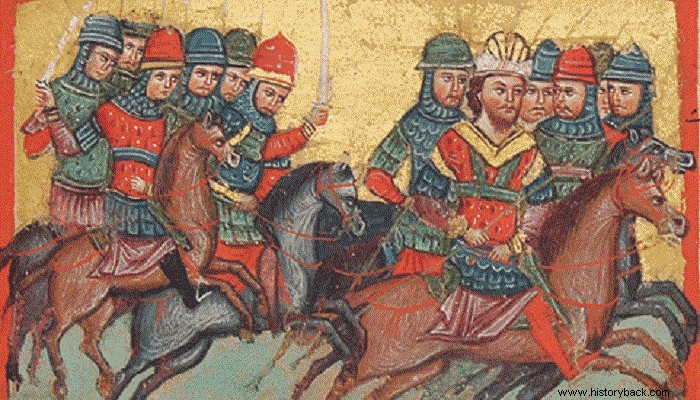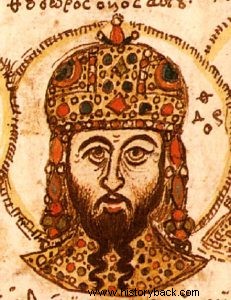
Theodoros Laskaris was a particularly remarkable personality of medieval Hellenism. He was born in Nicaea, Bithynia in 1222. He was the son of Ioannis Vatatzis and Irene Laskaris, and the grandson of Theodore I'Laskaris, creator of the state of Nicaea. He received an excellent education, for the time, having Nikiforos Blemmydis and Georgios Akropolitis as teachers.
On his accession to the throne he was also obliged to campaign against the Bulgarians, whom he completely defeated . He managed to stop the conflict with the Despotate of Epirus, even marrying his daughter to the son of the despot Michael II Komnenos. In the East he managed to come to an understanding with the Mongols, whom he used as a counterweight against the Turks.
He attempted to negotiate with the pope the Union of Churches in exchange for his help, or rather, his neutrality, in Theodore's attempt to liberate Constantinople. However, knowing the anti-Western sentiments of his people, he finally broke off the negotiations.
In domestic politics he proved to be a defender of the poor and weak against the tyranny of the so-called "Powerful" (nobles). He promoted worthy people to key positions, regardless of their noble or not origin, such as the Mouzalones brothers.
But his health was not good and its condition caused him intense emotional changes, as a result of which he turned, often unnecessarily, against people in his environment, such as the teacher of Acropolis whom he almost killed, when he ordered him to be mercilessly beaten, or his general Michael Palaiologos, whom he forced to abandon his service and take refuge with the Seljuks, in order to save his life.
He finally died in Nymphaeum, Bithynia, in 1258, at the age of only 36, leaving behind his seven-year-old successor John, with George Mousalonas as commissioner. But soon the military revolted and, led by Michael Palaiologos, murdered George and Nikephoros Mouzalons, blinded the heir and put Michael Palaiologos on the throne.
Theodore was particularly faithful to Orthodoxy. He is even considered the creator of the Great Supplication Canon to the Blessed Virgin Mary. Also important is that Theodore used to use the term Greek, instead of Roman, especially the theological and especially the philosophical works he wrote are a hymn to the Greek language and Greek philosophy.
In fact, when he was conversing with Latins, he used to say:"All the philosophy and knowledge of the Greeks seems to be a find...and you, O Italian, what is the reason for this?". And he ended by saying:"Above all languages, the Greek is a genus", giving in this way an answer to those who even today still question the existence of a Greek national identity in those distant times.

